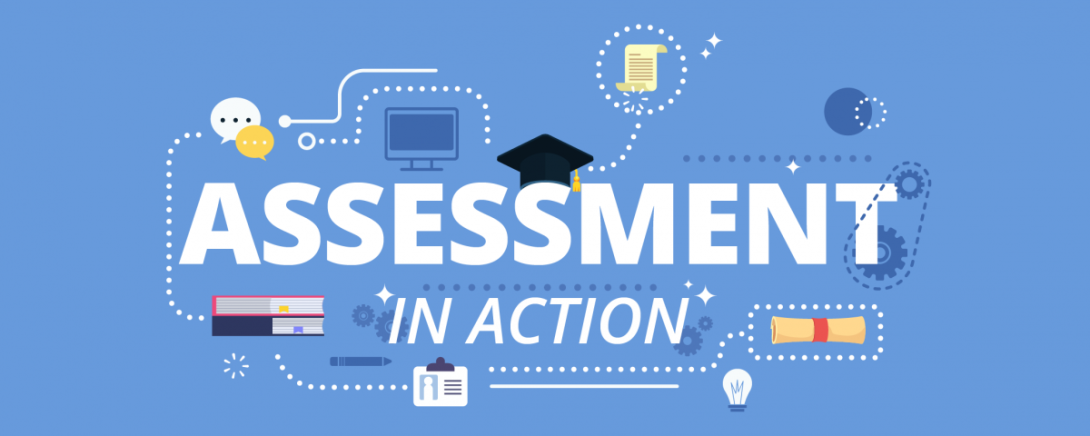
On September 15th, OUE held its 2nd Annual OUE Assessment Townhall. This year, with the help of the OUE Assessment Committee and guest attendees from the Office of Academic Effectiveness, Franz Reneau and Sarah Wu, OUE’s Assessment Town Hall focused around the “3 Minute Assessment Thesis.” During this competition, each unit had three minutes to present on an assessment project they had completed over the last year and discuss its role in continuous improvement for their unit. Presentations could include one slide and were followed by up to three minutes of Q&A. Overall, the event featured nine presenters from across all OUE units. We are pleased to announce the winners for this year’s competition: Lacy Hodges and Savitra Dow.
Lacy and Savitra focused their presentation on the use of an evaluation rubric to directly measure performance of GT1000 and GT2000 Team Leaders. Their rubric covers seven areas: Knowledge of Campus Resources, Communication Skills, Dependability, Attitude, Approachability, Presentation Skills, and Initiative. Team Leaders are asked to complete a self-evaluation as well as an evaluation with their instructor. On an individual level, these results help the student recognize their strengths and areas for improvement. When taken in aggregate, these results allow UA&T to look for meaningful ways to improve their Team Leader training and create new opportunities for their students to learn and grow as professionals.
Lacy and Savitra described some of ways they have been able to use this data for improvement this year: “Overall, TLs were ranked by their instructors as “strong” in all seven rubric categories, and their self-rankings were also quite high. However, one category was the lowest across both instructor and self-evals: initiative; given this, our improvements for the upcoming year focus specifically on TL initiative. In Summer 2020, for example, we held live panels during both TL and instructor training that included advice from a few of our outstanding instructors who were able to provide examples of how TLs can take initiative in the classroom and how instructors can encourage and offer opportunities for initiative. We have also implemented TL mentor groups led by our GT 1000/2000 Ambassadors. These mentor groups improve the TL program by offering a pathway to more intensive leadership development and providing new opportunities for our student leaders to take initiative in developing activities and ideas to implement in the classroom.”
Thanks again to all our presenters, judges, and attendees this year! We appreciate this opportunity to showcase your work and highlight your dedication to program improvement.
